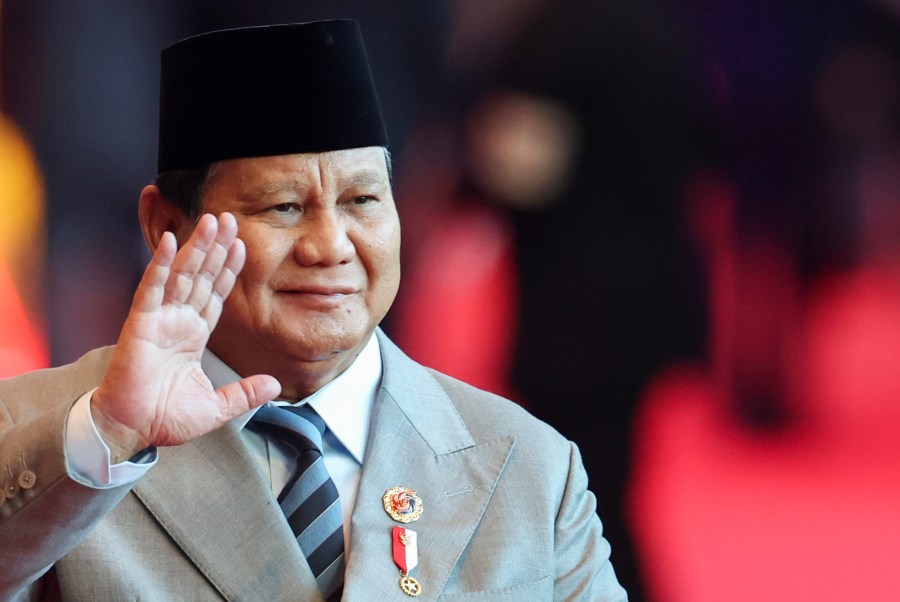Top Stories
Trump Moves to Normalize Indonesia-Israel Relations Amid Ceasefire

UPDATE: President Donald Trump is actively pursuing normalization of relations between Indonesia and Israel as a fragile ceasefire in Gaza holds. During a recent visit to the ASEAN Summit in Malaysia, Trump praised Indonesian President Prabowo Subianto for his support in stabilizing the region, marking a potential shift in diplomatic ties that could reshape Middle Eastern geopolitics.
In his remarks, Trump stated, “I want to thank Malaysia and Brunei as well as my friend, President Prabowo of Indonesia, for their incredible support of these efforts to secure the new day for the Middle East.” This statement underscores the heightened urgency surrounding Indonesia’s potential role in the normalization process, particularly following the recent agreements between Israel and Hamas.
With the ceasefire in Gaza now in its third week, the White House is optimistic that a lasting peace could facilitate Indonesia’s cooperation in establishing formal ties with Israel. This initiative follows the successful Abraham Accords, which previously established diplomatic connections between Israel and several Arab nations.
Key Facts:
– The ceasefire has created an opening for Indonesia, the largest Muslim-majority nation, to reconsider its long-held stance against normalizing relations with Israel, contingent on a clear pathway for Palestinian statehood.
– Trump’s administration believes that if the ceasefire remains intact, it could lead to Indonesia and Saudi Arabia formalizing ties with Israel, significantly altering the diplomatic landscape.
Indonesian Foreign Ministry spokesperson Yvonne Mewengkang emphasized the need for Palestinian independence, stating, “Any vision related to Israel must begin with the recognition of Palestinian independence and sovereignty.” Despite this, indications suggest Indonesia may be willing to engage in dialogue about normalization, especially as Jakarta seeks to bolster its international standing.
Earlier this month, Prabowo demonstrated his commitment to peacekeeping initiatives by pledging 20,000 troops for a potential UN mission in Gaza. This significant offer came during discussions at the United Nations General Assembly, where he reiterated Indonesia’s support for a sovereign Palestinian state while acknowledging the necessity of Israel’s security.
Former U.S. officials, including Daniel Shapiro, who previously worked on normalization efforts, noted that Trump’s transactional approach could present unique opportunities. “If the Indonesians have something they’re seeking from the United States—whether it’s in the realm of tariff relief or security arrangements—this could represent an opportunity,” he remarked.
Trump’s administration is also aware of Indonesia’s aspirations to join the Organization for Economic Co-operation and Development (OECD), viewing U.S. support as a critical factor in Jakarta’s pursuit of enhanced global influence and investment opportunities.
As Indonesia weighs its options, skepticism remains among the Indonesian public regarding normalization with Israel. Observers note that any sudden shift could undermine the country’s long-standing image as a champion of Palestinian rights. Scholar Dina Sulaeman remarked, “If Indonesia suddenly wants to join the Abraham Accords and normalize Israel’s occupation of Palestine, the good image that the Indonesian government has built over decades will collapse.”
The stakes are high as the Trump administration continues to engage with Indonesian leaders. The outcome of these discussions could have lasting implications for stability in the Middle East and the broader Muslim world.
Next steps include ongoing dialogues between Trump and Prabowo, as well as strategic planning to maintain the ceasefire. The world will be watching closely as developments unfold in the coming weeks, particularly concerning Indonesia’s stance on Israel and the Palestinian issue.
With tensions still palpable, Trump’s push for normalization could redefine diplomatic relations in a region fraught with complexities. As the situation evolves, both U.S. and Indonesian leaders are poised to navigate the intricate dynamics of peace, security, and regional cooperation.
-

 World2 weeks ago
World2 weeks agoGlobal Air Forces Ranked by Annual Defense Budgets in 2025
-

 World2 weeks ago
World2 weeks agoMass Production of F-35 Fighter Jet Drives Down Costs
-

 Top Stories2 weeks ago
Top Stories2 weeks agoNew ‘Star Trek: Voyager’ Game Demo Released, Players Test Limits
-

 Science2 weeks ago
Science2 weeks agoTime Crystals Revolutionize Quantum Computing Potential
-

 Top Stories2 weeks ago
Top Stories2 weeks agoDirecTV to Launch AI-Driven Ads with User Likenesses in 2026
-

 World2 weeks ago
World2 weeks agoElectrification Challenges Demand Advanced Multiphysics Modeling
-

 Entertainment2 weeks ago
Entertainment2 weeks agoFreeport Art Gallery Transforms Waste into Creative Masterpieces
-

 Lifestyle2 weeks ago
Lifestyle2 weeks agoDiscover Reese Witherspoon’s Chic Dining Room Style for Under $25
-

 Health2 weeks ago
Health2 weeks agoGavin Newsom Critiques Trump’s Health and National Guard Plans
-

 Lifestyle2 weeks ago
Lifestyle2 weeks agoLia Thomas Honored with ‘Voice of Inspiration’ Award at Dodgers Event
-

 Entertainment2 weeks ago
Entertainment2 weeks agoFast & Furious Coaster Hits the Track at Universal Studios
-

 Science2 weeks ago
Science2 weeks agoWaning Crescent Moon: What to Expect on October 17









